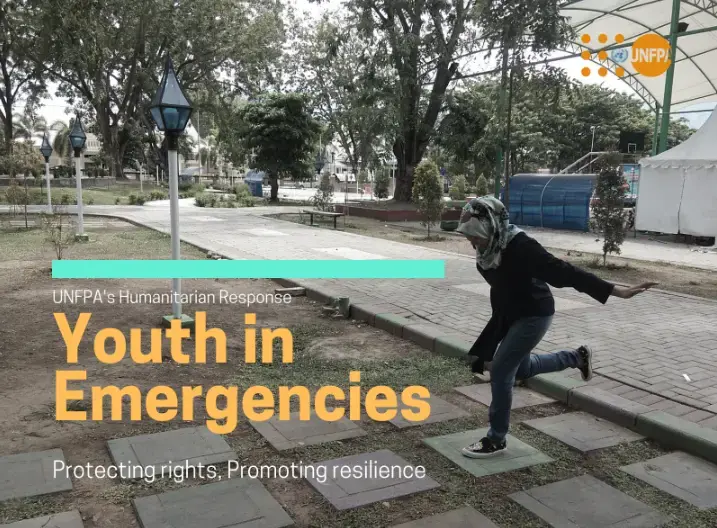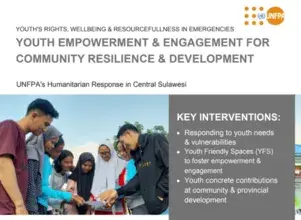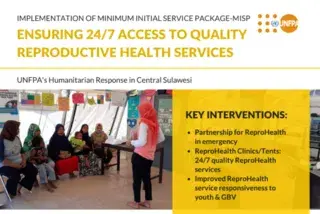“Nothing for youth without youth” is a statement that rings true in all contexts, including in the current COVID-19 pandemic. In this time of heightened public health risks, young people as digital natives play a critical role in disseminating accurate information on COVID-19, risk reduction and response efforts, which ultimately helps to ensure that young people’s needs are met.
Meaningful youth engagement in risk and response communications means young people take lead and creative control in message development and dissemination. With numerous youth influencers and youth-led platforms dominating digital space, a strategic approach to engage young people is to harness this network of young creators, build their capacity, and connect them to much-needed resources to elevate their content.
With this in mind and through employing human-centered design principles, the United Nations Population Fund (UNFPA) Indonesia started a community of practice for young digital Sexual and Reproductive Health (SRH) content creators in June 2020. The Community of Practice (CoP) is a network of youth influencers and youth-led digital platforms that produce youth SRH-related content. The CoP serves as a knowledge management platform to share best practices, tools, research, and other resources among creators and practitioners. It currently consists of 22 members, ranging from individual influencers, civil society organizations (CSOs), media companies, private enterprises, and international non-government organizations (NGOs). Representing different regions of Indonesia—from Java to Papua—-the members have a combined audience of over 200,000 young people.
“By joining the CoP, we would like to improve our knowledge and share activities or content. This platform offers a lot of benefits. Members get to gain from and share so much information and resources with each other,” says Ferdinand Andra of Youth Interfaith Forum on Sexuality (YIFOS) that implements a project called BebiTalk (Free to Talk).
Despite current physical constraints imposed by the pandemic, the CoP has provided capacity building virtually. The content creators have learned from experts from a variety of relevant fields—from mental health, digital safety to Social and Behavioral Change Communications—to strengthen their skills in COVID-19 risk and response communications for youth.
“I learned how to create quality content that can be beneficial to our followers, from experts who are really knowledgeable in their fields. I think that the CoP is such a great innovation,” says Monica Bengu, a representative from Tenggara Youth Community, Nusa Tenggara Timur.
With the new normal protocols that have recently been put in place in Indonesia, the CoP has also conducted social media listening to collect young people’s opinions and concerns regarding the situation. Over 400 aspirations have been gathered using innovative methods, such as Instagram Story features and LINE chatbots. It showed that anxiety regarding heightened risk of COVID-19 transmission during the new normal is the number one concern among young people, encompassing nearly 35% of all collected data.
Through the CoP, UNFPA is ensuring that COVID-19 responses meaningfully engage young people in risk communication and community engagement. With strengthened capacity for COVID-19 and beyond, young people should take the lead and creative control over their contributions. This is in line with UNFPA’s global strategy for youth, “My Body, My Life, My World”, which promotes adolescent and youth leadership in sustainable development and humanitarian action.
In the near future, the CoP is planning to broaden its learning sources and horizons to include experts from fields outside public health and communications, such as big data and digital marketing. The CoP is also excited to recruit more creators to better represent Indonesian youth’s vast diversity, and more importantly, to ensure equality of opportunity.
Neira Budiono
Youth Development Innovation Associate, UNFPA Indonesia





